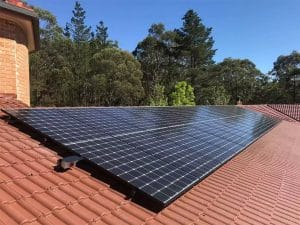Presented by Energy Matters team member Virginia, we take a look at some of the stories from Australia and around the world recently added to our renewable energy news section.
Virginia reports on REC enhancing performance of its award-winning Peak Energy solar panels, one of the tricks and traps when buying solar, renewables accounting for half of all new power generation globally and solar panels being developed to work underwater.
In this episode:
– REC Solar has announced enhancements to its award winning Peak Energy series solar panels, improving yields by up to nearly six percent. The temperature co-efficient of the peak maximum power point has dropped from minus 0.43 percent to minus 0.40 percent degrees per degree Celsius. Additionally, a reduction in operating temperature from 47.9 degrees to 45.7 degrees Celsius will help to increase expected yield. Read more.
– When is a 3kW solar power system not a 3kW system? With the reduction of the Government’s Solar Credits subsidy almost upon us, it is important to beware of the difference between the different solar power system offers out there. A tactic sometimes used is to accentuate the capacity of the solar inverter and downplay the capacity of the panels. Read more.
– A series of reports from the International Renewable Energy Agency show renewable power generation now accounts for half of all new electricity generation capacity additions worldwide. One series of analyses released by the Agency states that panel costs have plummeted 60 percent in the last two years. Cumulative installed capacity of solar PV has grown by over 70% in 2011 and the Agency says if this growth is maintained or increased, further cost reductions will occur. Read more.
– Scientists at the US Naval Research Laboratory are working on developing solar cells with the ability to generate enough electricity to operate equipment, such as sensor systems at depths of up to nine meters. By matching a solar cell to available wavelength range, the Navy has proven comparatively high conversion efficiency is possible. Read more.









































